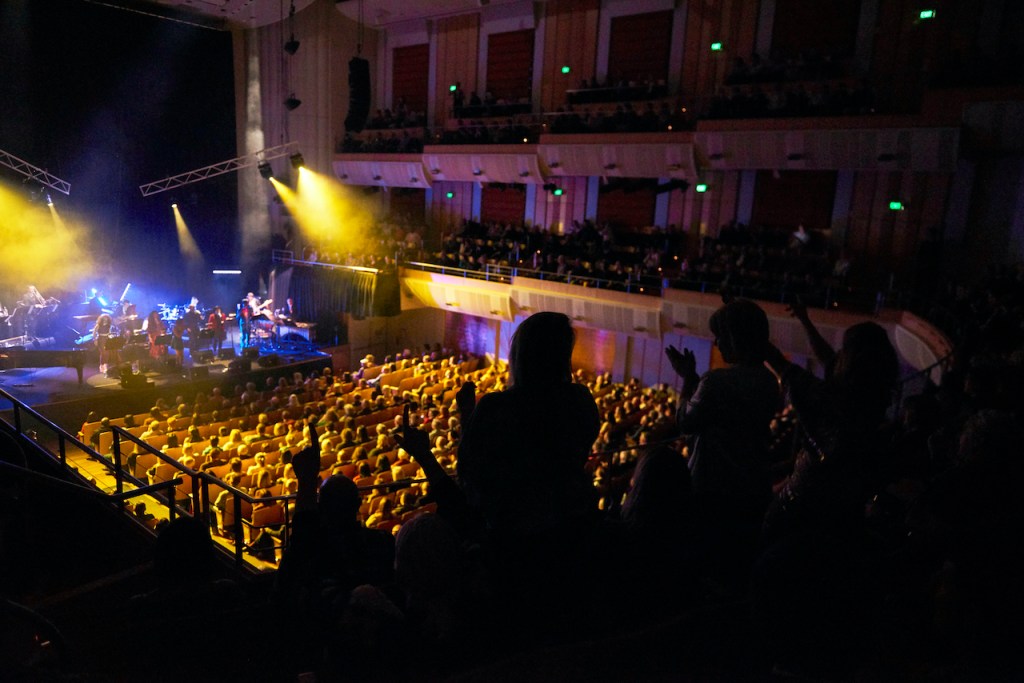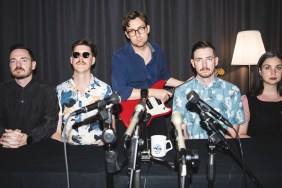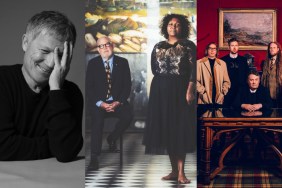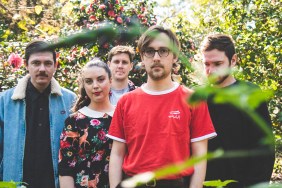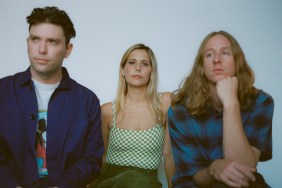Great news Sydney music fans, contemporary music will make a stunning return to Sydney’s iconic City Recital Hall this November, thanks to a collaborative effort between City Recital Hall and the Destination NSW’s Great Southern Nights program.
Aussie music legends Sarah Blasko and Tim Freedman will fill the hall with song, offering two truly unique experiences for Sydney’s live music fans. Blasko will be the first to take the stage on Saturday 21 November. Tinkling the ivories of a superb Steinway piano, Blasko promises to take the audience on a journey through the creative process, presenting new works and reimagining classics while holding a conversation throughout. The culmination of a series of shows in which Blasko writes, records and performs works that will be the basis of a new album, this is a once-in-a-lifetime opportunity for fans to get to know the artist like never before. Blasko will be supported on the night by Lisa Caruso.
Freedman will follow on Wednesday 25 November with a similarly special offering, as he too takes a seat at the Steinway for a rare solo showcase spanning The Whitlam’s storied career. A celebration of The Whitlam’s new single ‘The Ballad of Bertie Kidd’, one of the nation’s finest musical storytellers will bring his songbook to life, with a set full of solo musical readings. The City Recital Hall’s incredible acoustics are set to amplify the intricacies and emotional depth of song’s like ‘No Aphrodisiac’ and ‘Blow Up The Pokies’, as Freedman displays his performative flair. As a bonus, as anyone who has seen Freedman solo before will attest that the brilliance of his between-song banter, is almost worth getting a ticket to alone. Support for Freedman’s show will come from Jak Housden and Phil Stack.
With a capacity of over 600 per show, these two shows will run in accordance with strict COVID-19 protocols.
Staging a concert series like this in 2020 is no small achievement, so in the lead up to the shows, Music Feeds spoke with Justin Boschetti the CEO of City Recital Hall to get the lowdown on how they’re managing to bring Sydney back to live music.
MF: Justin, you’ve managed to do the impossible and bring two decent sized shows to Sydney in 2020! How did you manage to do this, and how excited are you?
Justin Boschetti: We’re thrilled obviously! We all know it has been a difficult year, particularly so when your job is to create live music experiences. Now that it’s time to reactivate the venue, with a smaller team, it brings home how much effort it takes to get all of the parts moving again. It is core to what we do, that connection between the audience and the artist, that’s what makes live music magic. You can listen to music on Spotify, but what’s missing is that connection between the artist and the audience and the audience and each other. So we’re very excited to be able to make that happen again.
MF: City Recital Hall is traditionally a space reserved for classical and baroque music, but you’re inviting Sarah Blasko and Tim Freedman, two more contemporary artists, to do these two shows. What was the motivation for that?
JB: We’re keen to make sure there’s a breadth of music presented here, particularly when we put on shows, as CRH Presents. Sarah has performed here before, so we’re aware that our audience is appreciative of her work. We feel the same will be true for Tim. Both are performing on our Steinway D series pianos, and we know our hall is great for solo piano work, so it felt like the perfect opportunity to take advantage of the venue’s acoustic brilliance. It’s a very intimate venue, 1238 seats of which we’ll be using half of them, due to the restrictions, but despite that size, across the three levels, you’re never further than 20 metres from the stage, so it is an incredibly intimate space, so having them perform effectively solo, is a good showcase of the venue and of Sarah and Tim’s work. Sarah and Tim are household names as well, which is important from the perspective of getting the word out that we’re back open, so it’s helpful to get names that people instantly recognise.
We’re confident they’ll both bring great musicianship to the stage, which is an important aspect of our programming.
MF: There are support acts on each show, those performers are getting a rare opportunity, especially so in 2020, to play in front of a sizeable audience. Was that an important aspect of the booking process?
JB: That’s an important consideration. As a cultural institution, our landlord and key funder is the City of Sydney, so we have a responsibility to provide the ability for a diverse, inclusive range of emerging artists to develop their careers. That’s something we wholeheartedly support. This is especially true right now as it is quite difficult for anyone, let alone lesser-known acts to get in front of a sizeable group of people. We’ve had conversations with ARIA who are running the Great Southern Nights on behalf of Destination NSW and they’ve said that we’re one of the larger capacity venues involved in the program, so by having the support acts on these shows we’re able to give those artists a fairly unique platform at the moment.
There is another element to it as well, and that’s that we’re mindful that these shows are going to be one of the first nights out people have had in a long time, and we want it to feel memorable but also we want to feel normal. We want it to feel as enjoyable and full of a night as possible. We don’t want it to feel like you’re coming into an intensive care unit, we want it to be an experience, so we’re being very mindful of preserving that. Getting in, having a drink, catching supports, that’s all a part of that experience.
MF: It’s obviously been a challenging endeavour getting this together, especially given the reduced staffing, do you see the potential for the staff who have lost their roles in the industry to get them back if events like these two shows are successful?
JB: It’s definitely been the focus of our board to try and look forward and get back to where we were. It’s not our intention to redevelop the business to work with less. We are working strongly towards a full reactivation of how we operate and the staff that we engage. There’s a full range of skills that we require to run a venue, from marketing and ticketing to technical skills, front-of-house and bar staff. We also have a large casual pool of workers as well. It’s our goal to get back to being able to be back in full operation by the end of next year in terms of permanent staff. We’ve done what we needed to do to get through this period of closure and we look forward to bringing everyone back aboard.
MF: If I’ve got a ticket to one of these shows, what can I expect?
JB: A fairly normal experience with a bit of COVID-19 protocols and guidance. We’re doing a lot of work in the background, to make it as safe as possible, without being invasive. People can grab a drink from the bar, find their way to their seat and have a really good experience. We’ve been talking to other people in the industry and we’ve all had the thinking that we have to make sure that when we come back to hosting live events that the audience gets the experience they’re used to from our venue. So we’re confident we can deliver that experience with these shows.
MF: It sounds like they’re going to be amazing shows, I’m a little envious of those who get to attend.
JB: We’re really looking forward to them. It’s been wonderful hearing the orchestral music back in the halls, just having music floating through the foyers again has been great. So to have some contemporary music and get some different audiences in is very exciting.
MF: If these shows go as well as it seems they will, do you see this model as being something that other venues around the country could adapt, and learn from your experiences?
JB: The one thing that’s come out of the pandemic is that people are sharing ideas and talking in ways that they hadn’t been previously. Everyone seems to have realised immediately that we all need to work together as an industry to make sure that live music survives, so the level of information people have been willing to share with others that they’d traditionally consider competitors has been refreshing. We’re definitely a part of that and in constant communication with similar venues, seeing how we can work together a bit more to create the best outcome. Hopefully, that collegiality continues into the future, because we all want the live music industry to flourish, and it would be great if we all work together towards that outcome instead of treating each other as competitors.
